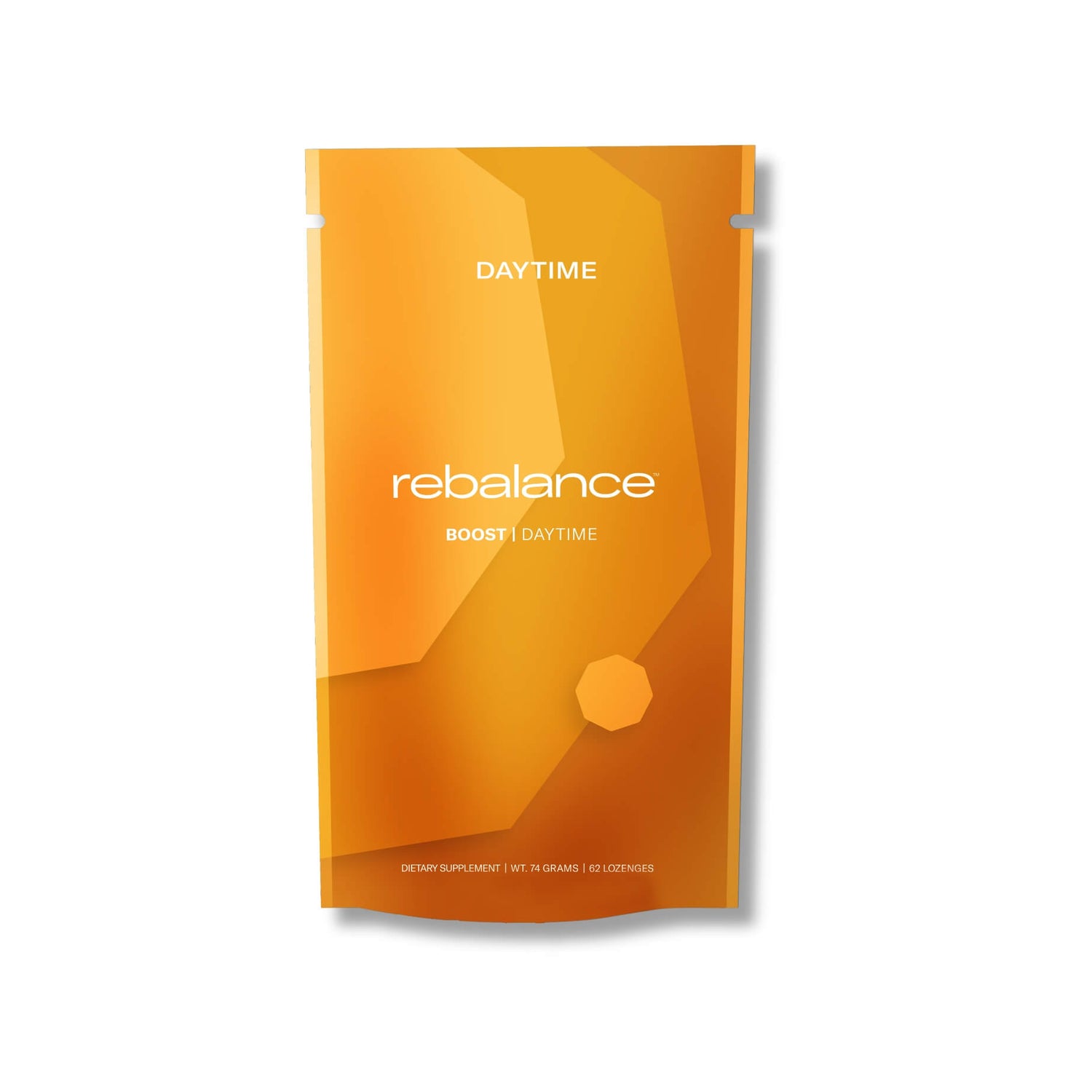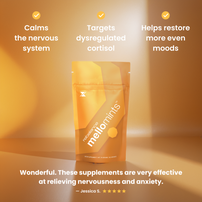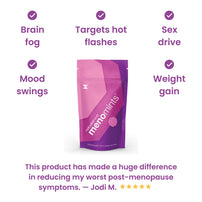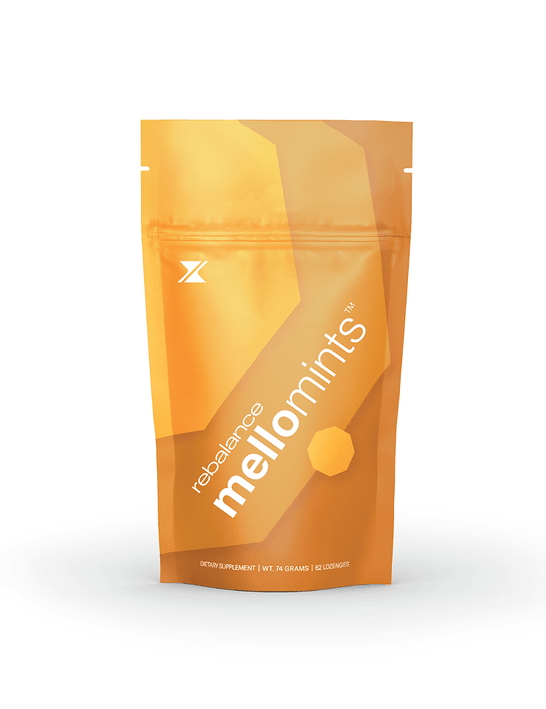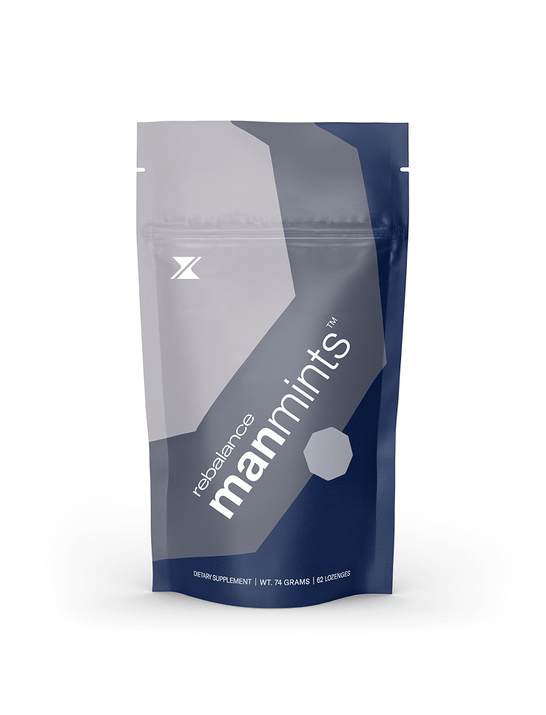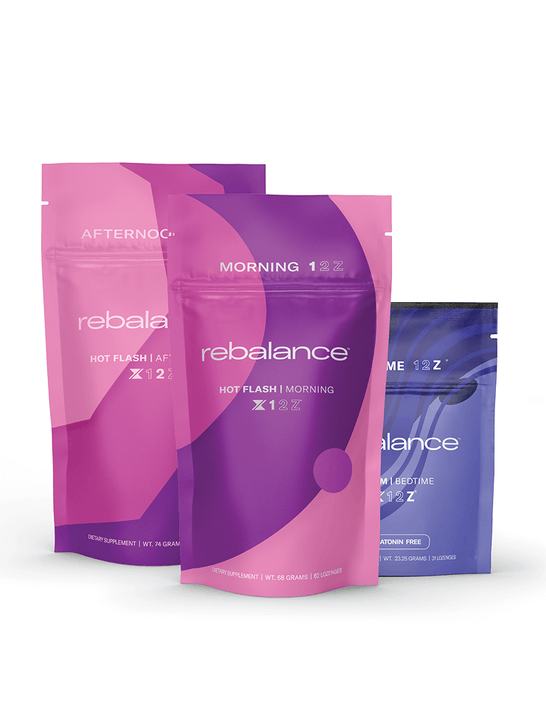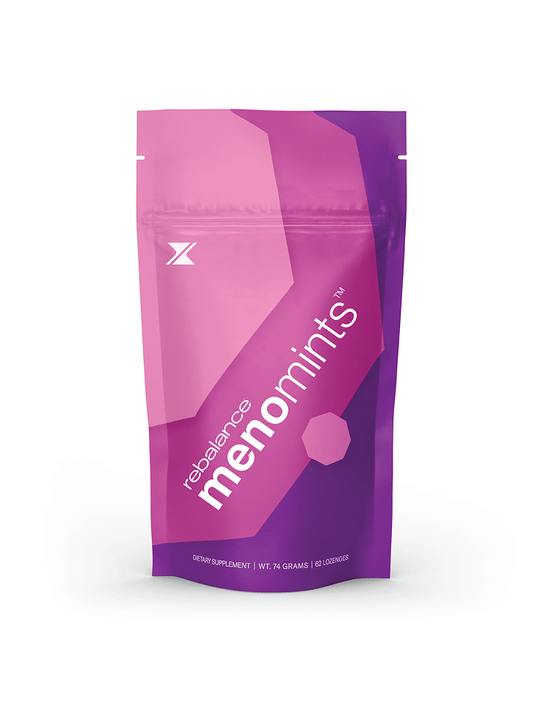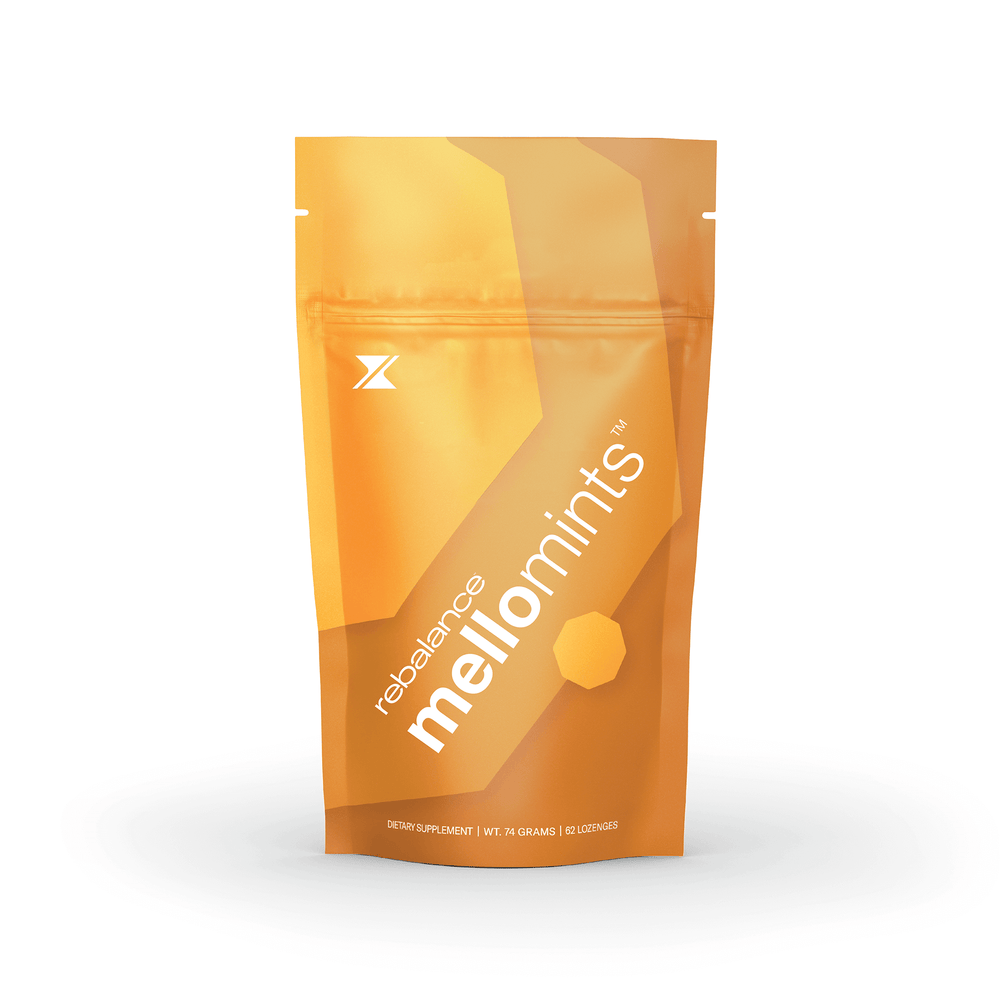Meno Belly or Cortisol Belly? Why It’s Hard to Tell — And What You Can Do About It
04/03/2025 by Rebalance Health

You’re eating like you always have. Moving your body. Maybe even skipping dessert.
But suddenly… your jeans feel tighter. And your midsection feels like it’s got a spotlight on it.
If you’re in perimenopause or menopause, and it feels like your body’s playing by a whole new set of rules — especially around your belly — you are definitely not alone.
A lot of women call it “meno belly.” But here’s the thing:
It might not be just menopause. It might instead be cortisol.
And sometimes — it’s both, which can cause a double-down of symptom severity.
What Is Meno Belly?
“Meno belly” isn’t a medical term, but it’s very real. As estrogen levels start to drop in your 40s and 50s, your metabolism slows down, muscle mass declines, and fat starts shifting to your middle. It’s frustrating, for sure — but it’s extremely common.
Still… it’s not the whole story.
Because there’s another hormone that tends to sneak in and make everything worse: cortisol.
Cortisol: Your Stress Hormone (aka The Belly Fat Magnet)
Cortisol is your body’s main stress hormone. It helps you react to danger, stay alert, and access quick energy. But when stress becomes constant (hi, life), your cortisol stays elevated — and your body starts doing what it thinks will keep you safe: storing fat around your belly.
Why the belly? Because that’s where your body wants to keep energy reserves when it thinks you’re under threat.
Even if the “threat” is just a never-ending to-do list, a bad night of sleep, or doomscrolling until midnight.
And here’s the kicker: the symptoms of high cortisol? They look a lot like menopause symptoms.
- Belly weight gain
- Brain fog
- Low energy
- Cravings
- Crummy sleep
- Mood swings
- Sound familiar?
Cortisol + Menopause = A Hormonal Hurricane
Menopause doesn’t just come with its own set of symptoms — it actually makes your body more sensitive to stress. So, when estrogen drops, your cortisol response ramps up.
That’s why you might find yourself at small things, waking up at 3am, or feeling totally fried after doing… honestly not that much.
The worst part? That cortisol spike can make your menopause symptoms even more intense. It’s a feedback loop. And not the good kind.
Yes, Cortisol Really Is Linked to Belly Fat
If you’ve ever felt like stress shows up right on your waistline... you’re not imagining it.
There’s real science behind the connection between high cortisol levels and stubborn belly fat. In fact, a study published in Psychosomatic Medicine found that women with more belly fat produced significantly more cortisol in response to stress than those who carried weight elsewhere.¹ In other words, stress might not just feel like it’s affecting your body — it actually is.
Another study out of Yale University showed that even in women who were otherwise slender, higher levels of chronic stress were linked to more abdominal fat.² That’s because cortisol doesn’t just tell your body to store fat — it tells it to store it right where you don’t want it: around your internal organs.
Over time, that belly fat becomes more than a cosmetic issue. It’s been linked to increased risk for metabolic issues, inflammation, and fatigue — which are all things many women already struggle with during perimenopause and menopause.
So yes, stress matters.
And yes, cortisol can absolutely be part of the “meno belly” puzzle.
So, What Can You Do About It?
Good news: this isn’t a life sentence. You don’t have to accept meno belly, mood swings, or mental fog as your new normal. But it does mean you need to support your body differently than you did in your 30s.
Here are a few ways to start shifting things:
- Work with your rhythm. Your hormones run on a daily cycle — supporting cortisol at the right times of day can make a big difference.
- Don't overdo the workouts. A walk, yoga flow, or light strength training can actually lower cortisol better than a high-intensity session.
- Eat in a way that balances blood sugar. Skipping meals or eating too little can spike cortisol.
- Rest like it's your job. Seriously. Rest is productive now.
- Consider targeted support. Adaptogens and ingredients that calm your nervous system and regulate stress hormones can help you feel like yourself again.
How Rebalance Helps
Rebalance was built for this. Not just hot flashes. Not just stress. But the real-life hormonal chaos that happens when your body is trying to adjust to everything at once.
Our nutrient-packed lozenges are taken three times a day — morning, afternoon, and night — to support your cortisol curve and help:
- Lower stress levels
- Improve sleep and energy
- Balance hormones naturally
- Reduce frustrating symptoms (yes, even meno belly)
- And we’ve got clinical proof to back it up.
In a study presented at the 2023 Annual Meeting of The North American Menopause Society (NAMS), Rebalance’s system was shown to reduce hot flashes and other menopausal symptoms by an average of 80%.¹ Even better? 98% of participants reported overall symptom improvement, including improved mental clarity and increased libido.
This wasn’t just a feel-good result. It was part of an IRB-approved open-label study — and it reflects the very real changes our community is experiencing every day.
That’s not hype. That’s science — and relief.
Our Final (and most important) Thought: You’re Not Broken. You’re Human.
This isn't about willpower or trying harder.
Your body isn’t failing you — it’s just responding to a hormonal storm.
But you really can shift the tide.
With the right rhythm, the right support, and a little patience, you can feel clear, calm, and grounded again.
And hey — if your belly's been talking louder than usual lately… it might be time to listen to what your hormones are trying to say.
Are you ready to Rebalance your hormonal rhythm?
Learn more about The Hot Flash System
Sources:
¹ Psychosomatic Medicine, 2005: Higher cortisol response in women with abdominal fat
² Yale University News, 2000: Stress and abdominal fat link
Rebalance Health IRB Open Label Study. Abstract presented at The 2023 Annual Meeting of The North American Menopause Society (NAMS), September 27–30, 2023
Overview

Stay Calm. Sleep Deep. Wake Clear.
A lozenge that supports deep sleep, better REM, and calmer nights. Without melatonin — unless you want it.
